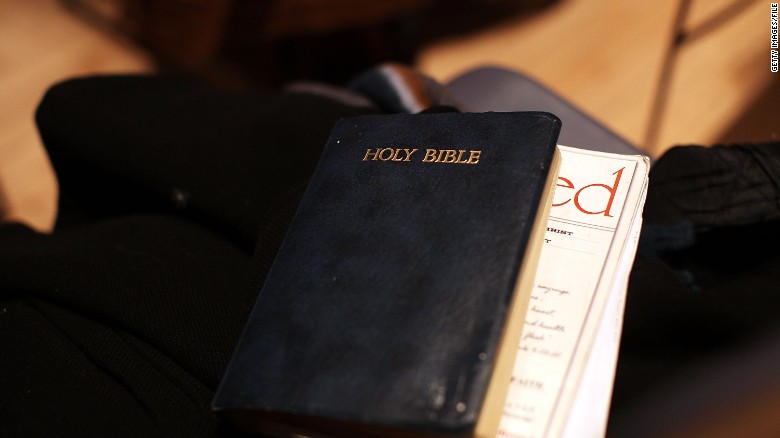A Catholic reads the Bible, week 34: Finding hope in Lamentations

This week, Laura Bernardini learned about the Jewish traditions around the Book of Lamentations.
(CNN)At the end of last week, I made the joke that I thought I had already been through the Book of Lamentations while reading Jeremiah.
This week, I realize, that was a pretty bad joke. Because I am not laughing. I am utterly depressed.
Lamentations has made me so sad, which, I know, I should have predicted from the title. But I didn't realize the depth of pain until I read it, and that despair had me reaching out once again for help.
When I told Sister Kathleen at my church that I was doing this project, she sent me home with authoritative texts from Catholic theology. This week, I reached for one of those books: "The New Jerome Biblical Commentary."
Lamentations is short -- it is the mourning over the loss of the Temple and the acceptance of the people's responsibility in the destruction.
While I felt like I was cheating, Sister Kathleen's book helped me gain perspective on Lamentations. It is commonly believed that it was authored by Jeremiah, the Hebrew prophet, which makes much more sense to me as it is a continuation of the Book of Jeremiah.
The same components from the Book of Jeremiah were carried over into Lamentations: wormwood, Sodom and Gomorrah, plus mentions of the need for women to eat their young babies to survive in exile.
I told you it was dark.
In "The New Jerome Biblical Commentary," I found this explanation: "Lamentation is not simply petition; it is rather a spontaneous response to the presence of chaos, brokenness, suffering, and death in life. When we hurt physically, we cry out in pain; when we hurt religiously, we lament."
And to lament is defined in the dictionary as a passionate expression of grief and sorrow. Hence, Israelites, your life has been destroyed. It's time to mourn what has been lost.
Because Lamentations is so heavily steeped in Jewish history and sorrow, I reached out to Rabbi Esther Lederman again. And yes, I do find it funny that a Catholic named Bernardini has a favorite rabbi.
In the Jewish faith, Lamentations is only read in Temple once a year. Rabbi Lederman helped me understand the utter destruction that I found in the book. Imagine a world where you lose everything: your home, your temple, your country. All gone.
But while I felt so badly about how sad this all was, Rabbi Lederman pointed me to a little hope.
The last sentence of Lamentations is, "For now you have indeed rejected us, and in full measure turned your wrath against us."
Rather than ending that way, Jews reading Lamentations in the Temple each year go back to Lamentations 5:21 and reread it. "Lead us back to you, O Lord, that we may be restored: give us anew such days as we had of old."
Now that is much more hopeful!
Next week is Baruch, a minor prophet's book. It's another one that isn't in many Protestant Bibles.

No comments:
Post a Comment